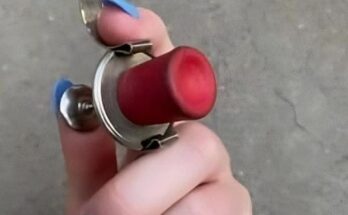Police K9 dies after being left in hot vehicle after air conditioner malfunction

It’s crucial now more than ever to keep an eye out for dogs left in hot automobiles because summer is still going strong and temperatures are rising to record levels in many places.
Dogs who are left in hot cars will not survive for long due to their severe susceptibility to heat stroke. Accidents can still occur even if you believe you have done all the necessary safety measures to avert catastrophe.
That was the unfortunate situation that occurred recently when a police department K9 was left in a hot car without air conditioning and without emergency procedures in place, leading to his death.
Vader, a 4-year-old K9 with the Arnold Police agency in Missouri, passed away on July 31 from heat exhaustion, according to a press release from the agency.
Vader was left in a running patrol car with the air conditioner running, according to the department, which referred to this as a “necessary and common practice” for K9s who are not actively participating in police operations.
Officers found that the air conditioning system had broken down when they got back inside the car.
The police added that although all of their K9 patrol cars have a failsafe mechanism that sounds the horn, pulls down the windows, warns the handler, and triggers the alarms and sirens if the vehicle reaches a particular temperature, this emergency backup “failed to activate.”
After being taken to the veterinary facility in a hurry, Vader appeared to be improving, but he eventually passed away.
The Arnold Police Department posted, “Unfortunately, we learned last night that there were no further treatments available for Vader and he succumbed to his injuries.”
“Investigating this tragedy to determine what went wrong,” the department wrote in a letter. They also requested that people remember Vader’s handler and his family in their prayers and expressed their sorrow over his passing.
Understandably, the public has been devastated by the news and has experienced strong emotions; many have wondered if more might have been done to avert this disaster.
On Facebook, someone said, “Take the dog with you, just like a child. Common practice needs to change.”
For that reason alone, another person remarked, “These dogs should never be left in a car for an extended period of time, running or not.” “I know it was an accident, but nobody else should have to go through this.”
Others recommended enhancing or testing the emergency heat alarm system of the cars more frequently because it did not sound.
Vader is sadly not the only police dog to pass away after being left in a hot car; sadly, this happens frequently due to either officer negligence or—in this case—a malfunctioning air conditioner and backup system.
Horus, a second Missouri police dog, also passed away after being left in a hot car overnight, a few days before Vader did.
It is terrible that police dogs could suffer and even perish from a hot car since they put their lives in danger for their communities. Although emergency warnings and air conditioning are features of patrol cars, it is obvious that these devices are not infallible.
We hope that Vader’s untimely passing and the deaths of all the other K9 victims will spur more measures to safeguard their lives.






